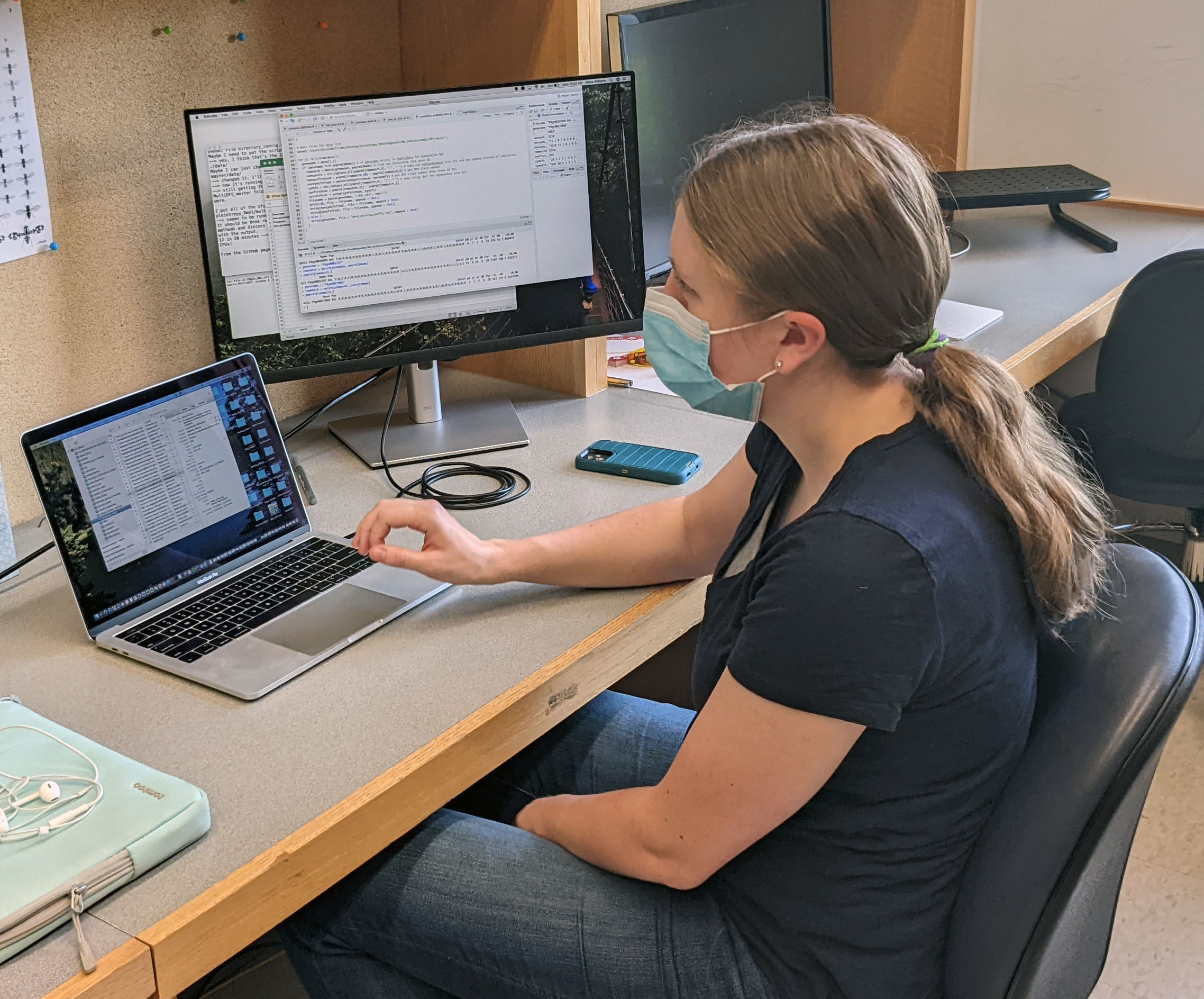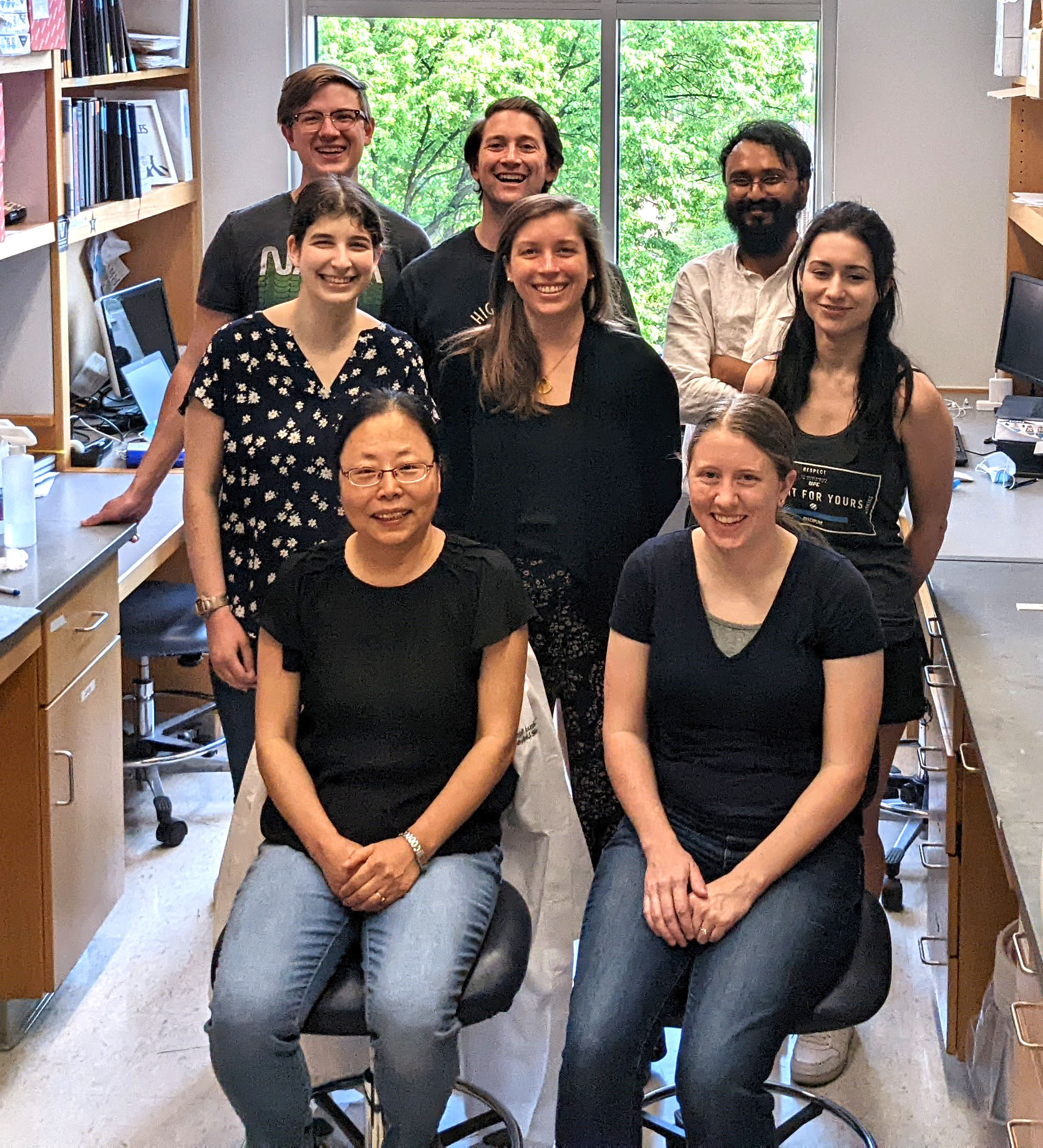Vanderbilt Researchers find Evidence for Evolutionary Constraints on Immunity
By Dr. Andy Flick, Evolutionary Studies scientific coordinator

A new study led by members of Ann Tate’s (Assistant Professor of Biological Sciences) lab found evidence that pleiotropy may slow down evolution of genes involved in immunity. Alissa Williams, postdoctoral researcher, and Thi Ngo, lab alumna, equally contributed to the new paper studying the evolution of immunity in Drosophila species. The paper, titled “The effect of developmental pleiotropy on the evolution of insect immune genes,” was published in Genome Biology and Evolution.
Pleiotropic genes are genes involved in two distinct functions. Working with these fruit flies, the group learned that genes with immune-developmental pleiotropy are quite common. They classified genes into three groups: 1) non-pleiotropic immune genes (genes involved in immunity and not development), 2) pleiotropic immune genes (genes involved in both), and 3) non-pleiotropic developmental genes (genes involved in development and not immunity). They found that non-pleiotropic immune genes evolve more quickly than pleiotropic immune genes; further, this latter group evolves in a similar way as development-only genes.

Genes involved in development often are under purifying selection – that is, evolution is acting to keep things the same, which is common for important genes. If a developmental gene changes, the organism will likely not survive. In contrast, when co-evolution is occurring between a pathogen and its host, genes regulating immunity must be able to evolve or the pathogen could overwhelm the organism. When the genes involved in immunity also regulate development, it makes for an interesting tug of war between remaining the same in order to aid in development and changing in order to aid in immunity.
According to Williams, “pleiotropy is a phenomenon found in essentially all organisms, both in immune systems and other biological functions. Our results show that immune genes evolve with more constraint when they’re pleiotropic, which has implications for how hosts fight off pathogens, how hosts and pathogens coevolve, etc. More broadly, these results show that there can be evolutionary constraints acting on dual function genes.”
Tate added, “this study provides evidence that pleiotropic immune genes are under stronger purifying selection than non-pleiotropic ones, which might help provide extra context for (Ph.D. candidate) Reese Martin’s study (read more here).”
Not all species have the same amount of pleiotropy within their genome.
Williams added, “there could be variation in pleiotropy even within the genus, and that would be something really interesting to investigate—we’d love to have more expression and functional data from other species. We are planning to expand this work into other insect groups, particular the genera Tribolium (beetles) and Nasonia (parasitic wasps). We want to understand whether the evolutionary patterns we found in Drosophila hold across a more diverse set of species.”
Williams developed a keen interest in immunity research the same way many of us find our interests, during a senior undergraduate course.
Williams said, “I didn’t know much about the immune system until I took an immunology course during my last semester as an undergraduate student. I was captivated by the subject—I think largely because evolutionary principles are so obvious when thinking about the immune system. I was (and still am) excited by the work in the Tate lab because it perfectly combines two of my favorite topics in biology.”
Funding Statement: This work was supported by the National Institute of General Medical Sciences at the National Institutes of Health (grant number R35GM138007 to A.T.T.)
Citation: Williams, A.M., Ngo, T.M., Figueroa, V.E. and Tate, A.T., 2023. The effect of developmental pleiotropy on the evolution of insect immune genes. Genome Biology and Evolution, p.evad044.